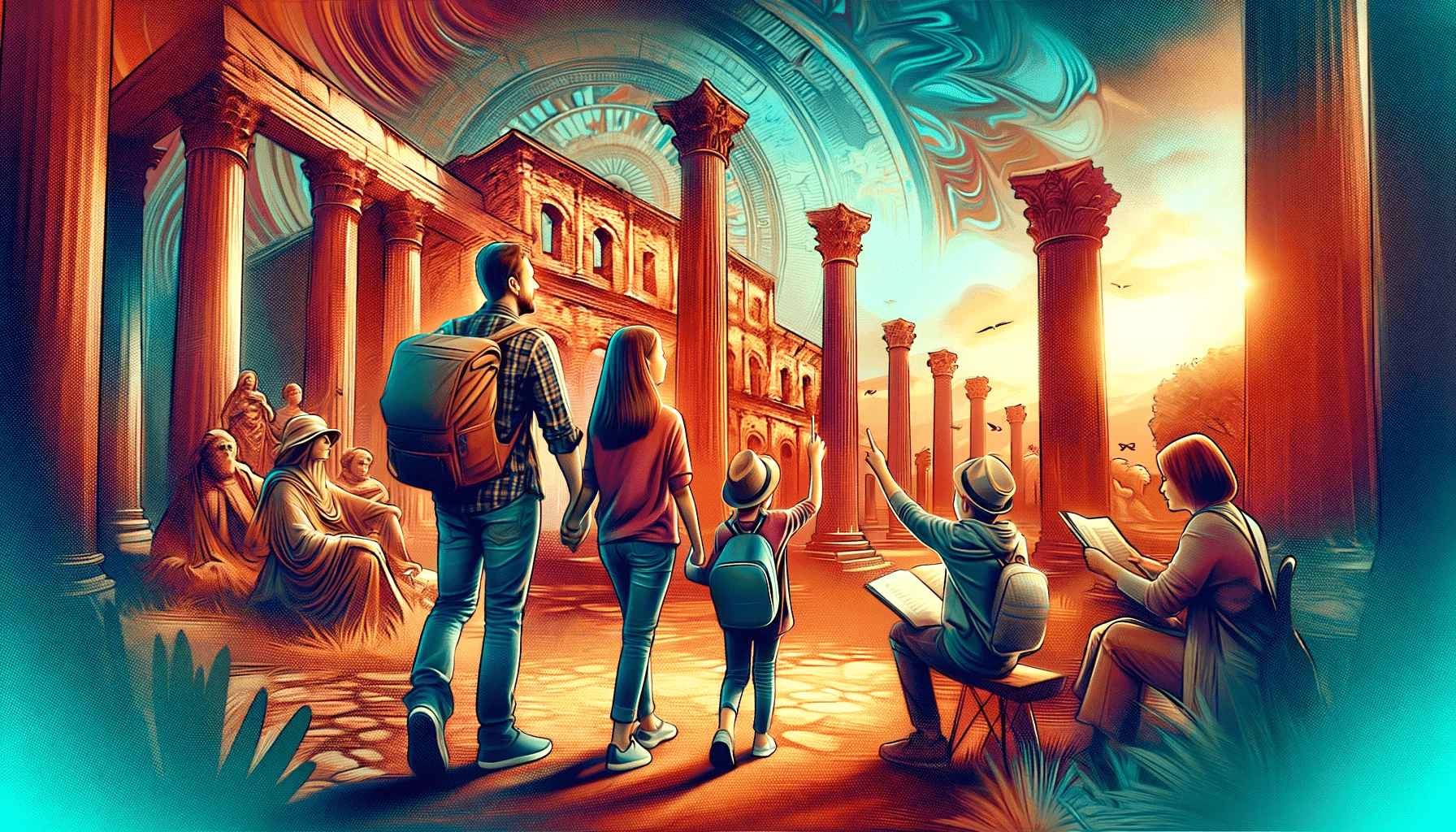
Family travel, especially in business class, opens up a world of new opportunities and experiences. They not only strengthen family ties, but also provide a unique chance for children’s education in a non-standard and inspiring environment enriched with comfort and high-quality service. Traveling allows children to explore different cultures and traditions in conditions of increased comfort, expanding their horizons and contributing to comprehensive development.
For many parents choosing business class for family travel, it is important to make the trip not only enjoyable, but also useful for learning. Thanks to the improved flight conditions, parents can find a balance between entertainment and educational moments so that the trip remains interesting for children and at the same time contributes to their development. Using travel as an educational tool in a comfortable business class environment can bring invaluable benefits in the process of teaching and raising children.
Effective planning and involvement of children in the travel process play a key role in the educational aspect of travel. Regardless of age, children can make the most of a trip if it is organized according to their interests and educational needs, and also offers comfort and amenities at the highest level. Travel is becoming not only a way to relax, but also a powerful learning tool, providing ideal conditions for work, relaxation and flight enjoyment
Travel as an educational tool
Traveling with your family is not only a vacation, but also an important educational tool. In the new environment, children learn much more actively than in the classroom. They encounter different cultures, histories, and languages, which expands their understanding of the world.
When traveling, children learn through observation and practice, which significantly strengthens their cognitive abilities. Direct contact with new languages, cultures and historical sites enriches their knowledge. This allows children to develop critical thinking and analysis skills.
Travel also helps you develop social skills and adapt to new situations. Children learn to connect with different people, which teaches them tolerance and respect for diversity. These interactions help children become more open and sociable.
In addition, travel encourages curiosity and a desire to learn new things. Meeting different lifestyles and environments inspires children to explore and ask questions, which is the foundation of learning.
Effective methods of learning on the road
While traveling, you can effectively teach children, combining learning with exciting moments. It is important to use every opportunity for learning, not forgetting about entertainment and games.
One of the key elements is visiting museums and historical sites. These places provide children with a unique chance to see history “live”, which significantly improves their understanding of the educational material. By explaining historical events with concrete examples, parents can make the story lively and interesting.
A variety of activities also play an important role in learning:
- Language games and practice: Using new words and phrases in real situations helps improve your language skills.
- Nature Excursions: Exploring nature and ecology helps children learn about biology and geography.
- Cooking classes: Cooking local dishes is a great way to explore the culture and traditions.
- Creative tasks: Drawing, photographing and keeping travel diaries develops creativity and helps to consolidate new knowledge.
Each of these activities contributes to the integrated development of the child, combining learning with exciting and creative activities. They make the learning process fun and memorable, which significantly increases its effectiveness.
Interactive methods of learning while traveling contribute to a deep understanding of the material. By turning learning into an adventure, parents can motivate their children to discover new things. This makes traveling not only enjoyable, but also useful for the educational development of children.
Planning an educational route
Planning an educational route requires a careful approach and consideration of the interests of all family members. To make your trip as informative as possible, it is important to choose destinations with a rich history, culture, and natural attractions. This will help you create a diverse program that will be interesting and educational for children of different ages.
When choosing a place, you should pay attention to the availability of educational events and excursions. Ideal destinations include a wide range of museums, art galleries, science centers, and nature parks. These places will provide children with the opportunity to learn through observation and hands-on experience, making learning interactive and exciting.
It is also important to take into account the duration of the trip and the pace of excursions. Too busy a program can tire children out and reduce their interest in learning. It is necessary to alternate educational activities with periods of rest and entertainment, so that children can digest the information received and enjoy the journey.
In addition, it is worth considering the possibilities of an individual approach in educational activities. Small groups or private excursions will allow children to get maximum attention and information adapted to their interests and level of understanding. This will increase the effectiveness of training and make the journey more meaningful.
Getting children involved in the journey
Involving children in the travel planning process significantly increases their interest and motivation to learn. By allowing children to choose places to visit and engage in activities, we instill in them a sense of responsibility and decision-making skills. It also helps them feel more connected to the journey and its goals.
Discussing the historical and cultural aspects of travel with children helps them better understand and appreciate the places they visit. Telling interesting stories and facts about the culture and history of the region turns learning into an exciting adventure. Such discussions can occur both during the planning process and during the trip itself.
The inclusion of educational games and tasks also contributes to active learning. For example, tasks to find specific objects or quizzes about places you visit make learning fun and interactive. This not only keeps children entertained, but also helps them remember information better.
Finally, encouraging children to keep a travel diary or create a photo album will help them consolidate their memories and travel lessons. By writing down their thoughts, impressions, and recognizable facts, children develop writing and reflection skills, which is an important element of the educational process.
Questions and answers
Family travel expands children’s horizons, introduces them to different cultures and histories, develops adaptive and sociable skills, and encourages their curiosity and desire to learn new things.
Effective educational activities include visiting museums, language games, nature excursions, cooking classes, and creative tasks such as drawing or keeping travel diaries.
Parents can engage their children in planning, allowing them to choose places to visit, participate in discussions about cultural and historical aspects of the journey, and include them in educational games and tasks.
 CulturalWings
CulturalWings